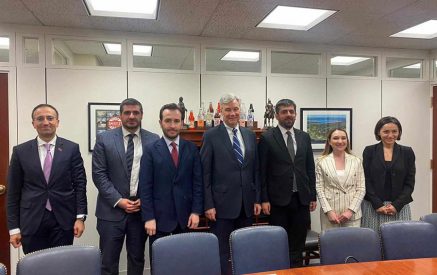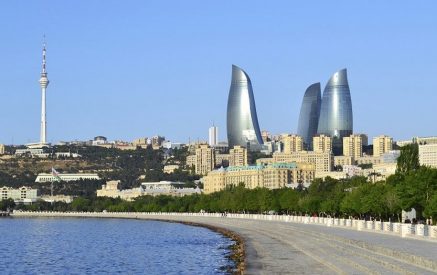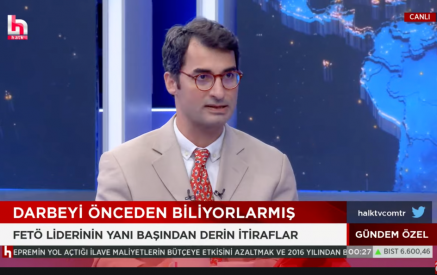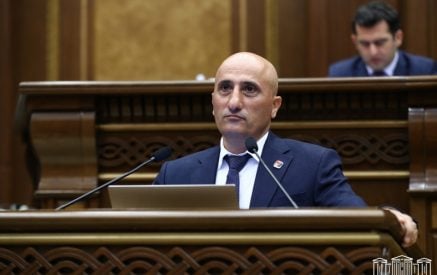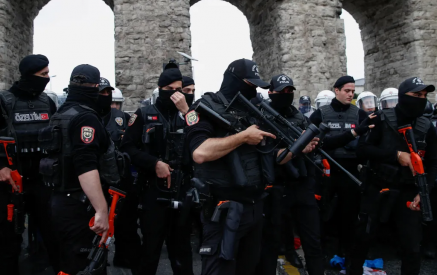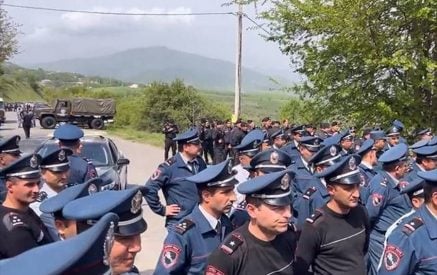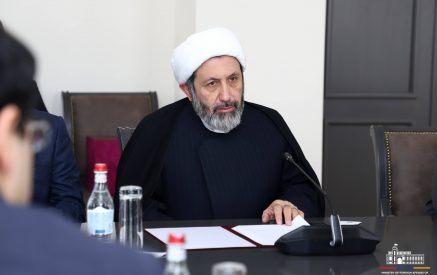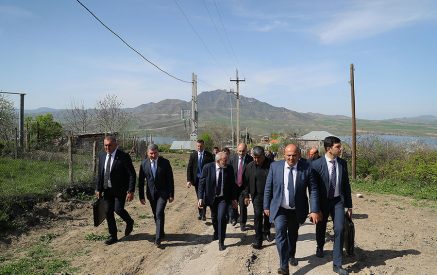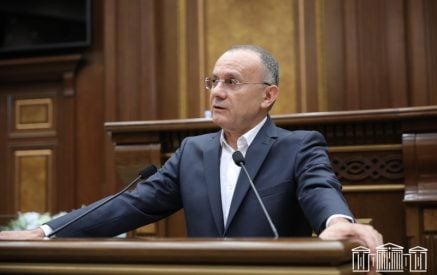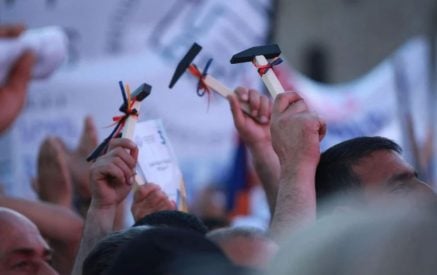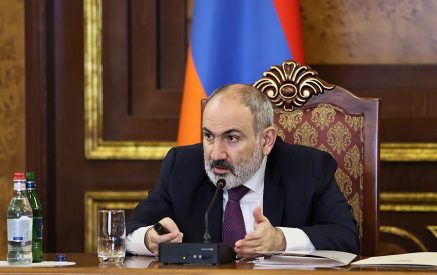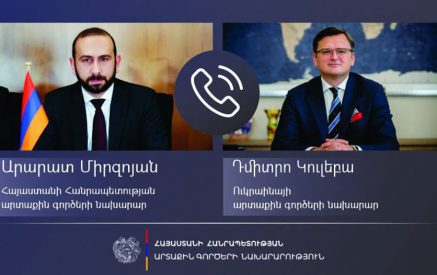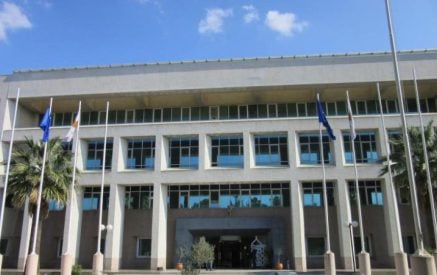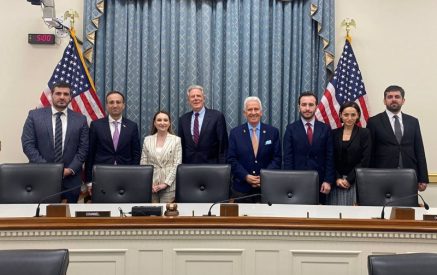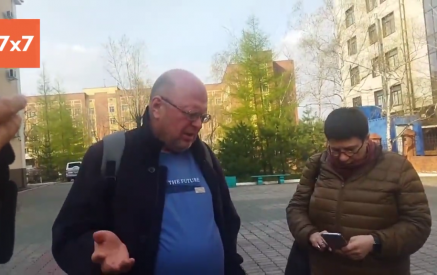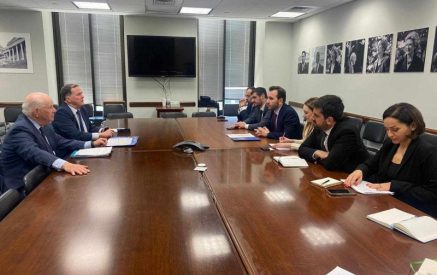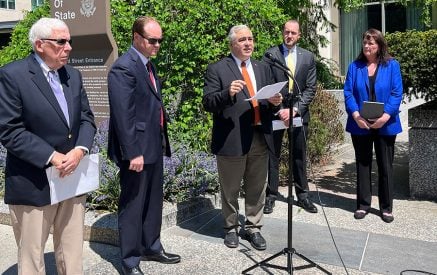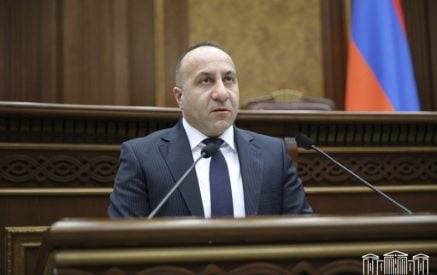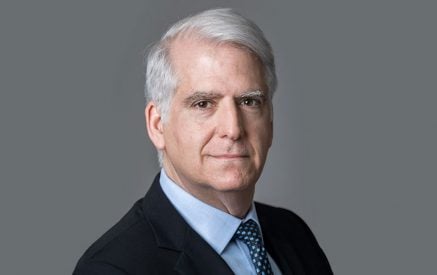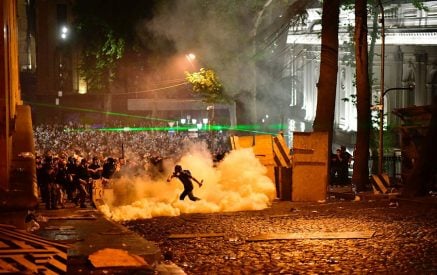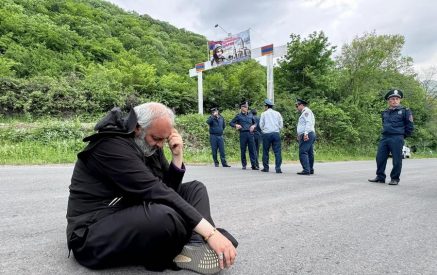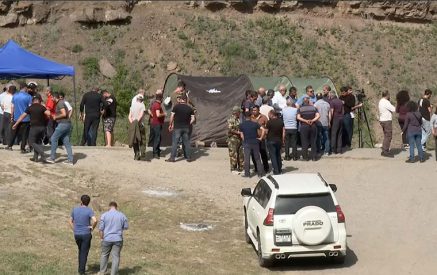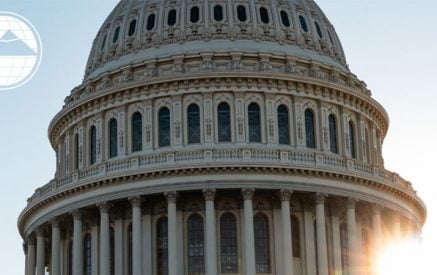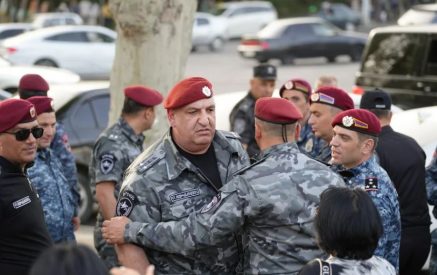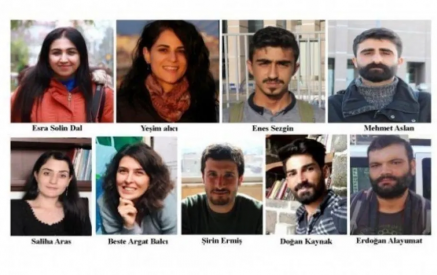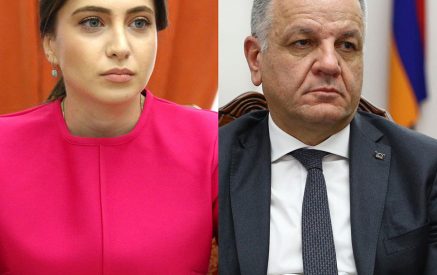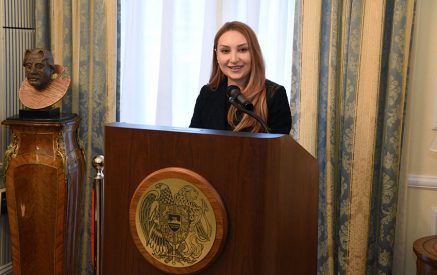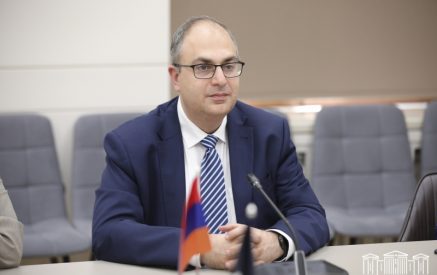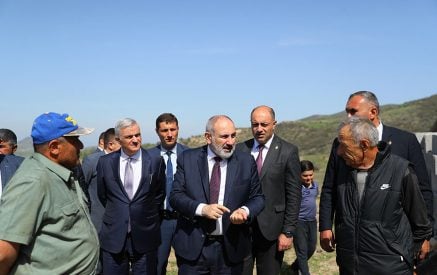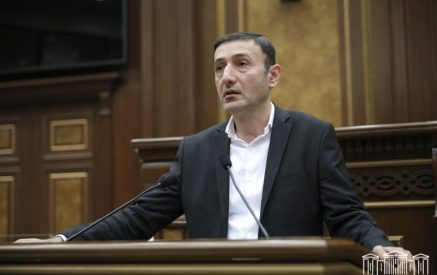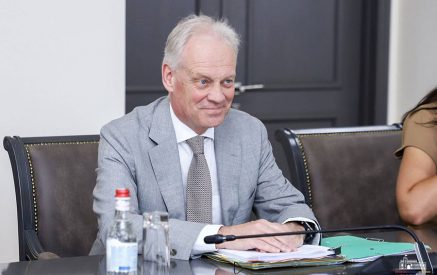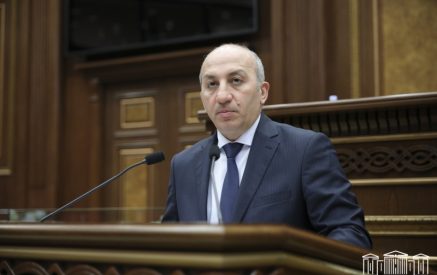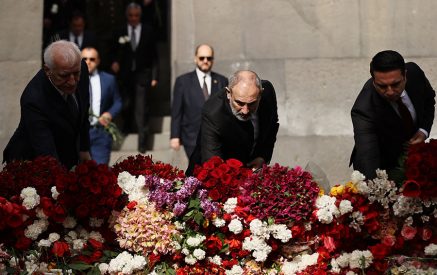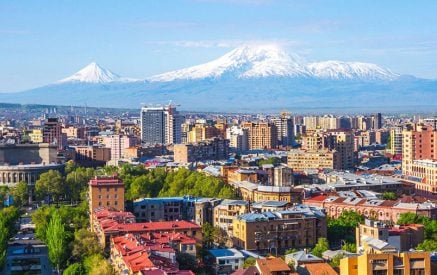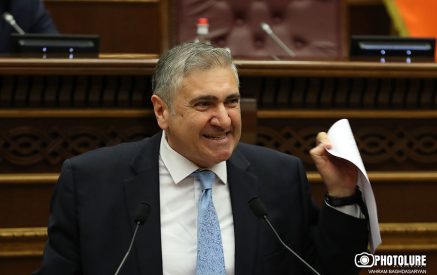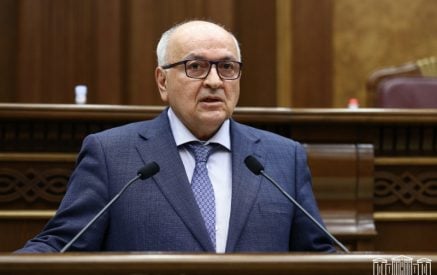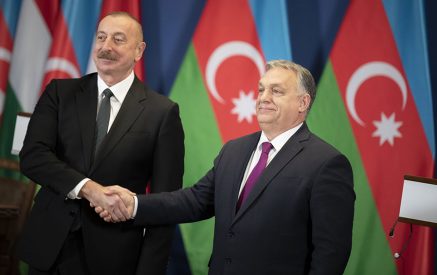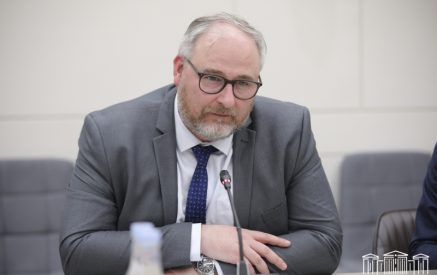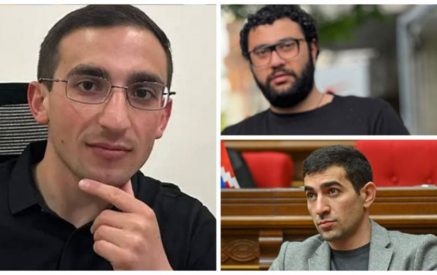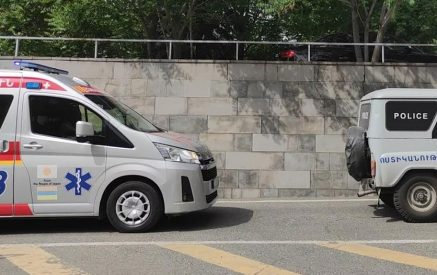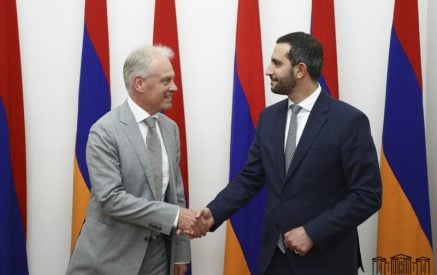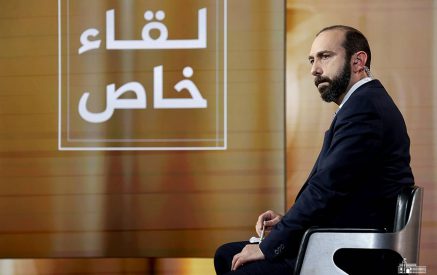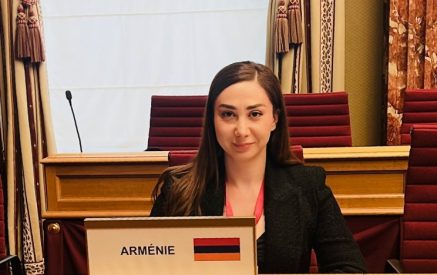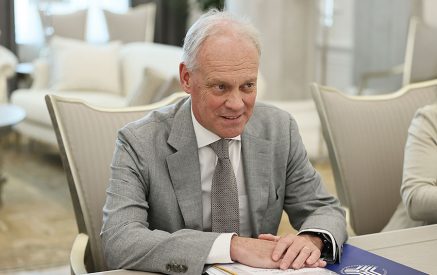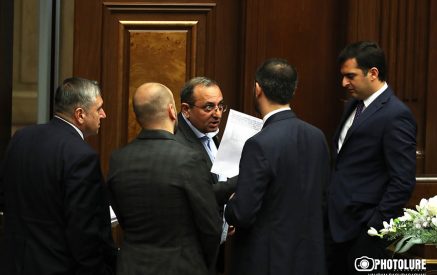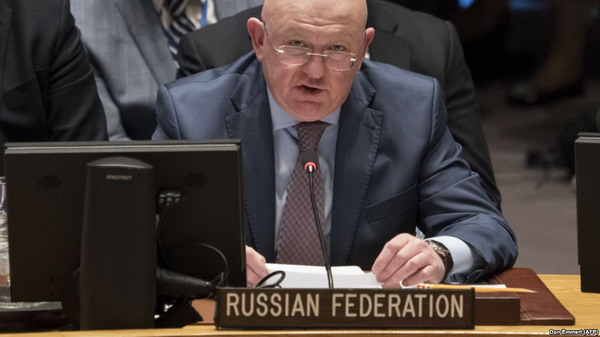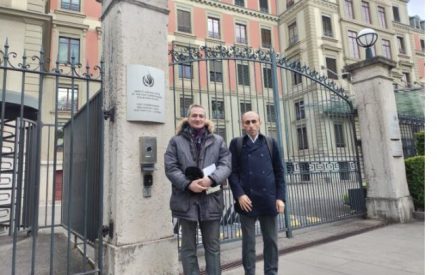RFE/RL. Russia’s UN ambassador pleaded with the United States not to stage a military strike against Syria after the UN Security Council deadlocked over proposals responding to a suspected chemical weapons attack outside Damascus.
Russian Ambassador Vasily Nebenzya’s plea late on April 10 came after the council defeated competing U.S. and Russian plans to investigate the attack in Douma on April 7, which killed at least 40 people, and amid growing signs that a U.S. air strike could be imminent.
Reuters and TASS reported late on April 10 that the pan-European air-traffic control agency is warning airlines to exercise caution in the eastern Mediterranean “due to the possible launch of air strikes into Syria with air-to-ground and/or cruise missiles within the next 72 hours.”
The Syrian Army has put its forces on alert for the next three days, while a U.S. Navy guided-missile destroyer, the USS Donald Cook, has been sighted in the Mediterranean within striking distance of Syria.
And U.S. President Donald Trump, who has vowed to make the perpetrators of the Douma attack pay a “big price,” on April 10 canceled a planned trip to South America so he could focus on the Syria situation, the White House said.
“I would once again ask you, once again beseech you, to refrain from the plans that you’re currently developing for Syria,” Nebenzya told his U.S. counterpart, Nikki Haley, after the UN council failed to agree to a UN-led investigation to determine who was responsible for the attack.
The threats of U.S. military action against Syria “should make us seriously worried, all of us,” Nebenzya said.
Nebenzya earlier had used Russia’s veto power in the council to block a U.S.-drafted resolution that would have established an independent investigative body to determine who is behind alleged chemical attacks in Syria, which the council had approved by 12-2. China, usually Russia’s ally, abstained in the vote.
“History will record that, on this day, Russia chose protecting a monster over the lives of the Syrian people,” Haley said, referring to Syrian President Bashar al-Assad, who the United States blames for the Douma attack.
She said the United States “went the extra mile” to get Russian support for the resolution to ensure that a new investigative body would be impartial, independent, and professional — provisions she said were not in the rival Russian resolutions, which the council defeated.
Haley said the Russian plan would have allowed Russia to choose the investigators and assess the outcome of the investigation.
“Does any of that sound independent or impartial?” she asked.
But Nebenzya accused the United States of setting up the council votes, knowing that both measures would be defeated, and then using their defeat as a “pretext” to “justify the use of force against Syria.”
Nebenzya said the United States and its allies didn’t really want an investigation to assign blame for the attack in Douma because they already have concluded that Syria and Russia are responsible and should be punished.
“You simply have been looking for a pretext” to take military action, he said.
Russia’s veto of the U.S. proposal was the 12th time that Russia has used its veto power to block action targeting Syria.
The council voted on two proposals put forward by Russia, but both measures failed to garner the nine votes required for adoption.
The U.S. proposal would have revived the work of a previous UN panel, known as the Joint Investigative Mechanism, that shut down in November after Russian vetoed a resolution to renew its mandate.
That panel concluded that the Syrian Air Force dropped the deadly nerve agent sarin on the village of Khan Sheikhun in April 2017, killing nearly 100 people.
The Khan Sheikhun attack prompted Trump to order U.S. missile strikes on the Syrian airfield where he claimed the government’s planes launched the attack.
The damage from the U.S. missile strikes did not deter Syria in the last year from gaining the upper hand in its seven-year civil war, but Western countries say such air strikes are intended as “punishment” for Syria crossing a “red line” by using globally banned chemical weapons.
Syria has denied using chemical weapons anywhere in the country, despite the now-defunct UN panel’s findings that Damascus was behind several documented chemical attacks there since 2014.
The international chemical weapons watchdog, the Organization for the Prohibition of Chemical Weapons, said on April 10 that it was sending a team of experts to the site of the Douma attack to gather evidence and determine whether it involved banned chemical weapons.
Trump in threatening a retaliatory strike against Syria in recent days has consulted with the leaders of France and Britain.
The White House said that Trump and British Prime Minister Theresa May on April 10 “agreed not to allow the use of chemical weapons to continue.”
French President Emmanuel Macron said that any strikes by Western powers would not target the Syrian government’s allies, which include Iran and Russia, but rather would be aimed at the Syrian government’s chemical facilities.
The Syrian Observatory for Human Rights, a war monitor, said the Syrian Army has put all of its military facilities, including airports and bases, on alert for the next three days.
Photo – RFE/RL

